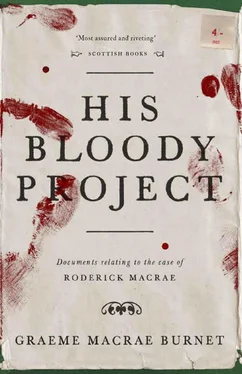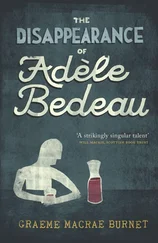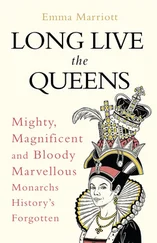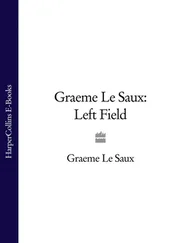Dr Munro, clearly appreciating that he was being given an opportunity to redeem himself, replied that while it was impossible to put an exact figure on it, it must run to ‘many hundreds’.
‘And in your long experience only a very small proportion of those who pass through your care might be termed insane?’
‘That is my opinion, yes.’
‘Your medical opinion?’
‘Yes.’
‘Do you recognise the signs, or symptoms, of insanity, Dr Munro?’
‘I do.’
‘Could you please enumerate those signs for us?’
‘Firstly, a prisoner might be labouring under some delusion —’
Mr Gifford here apologised for interrupting the witness. ‘Could you please explain what you mean by the term “delusion”?’
‘I mean simply that the prisoner is suffering from some erroneous belief. Perhaps, he hears voices in his head, sees visions, or believes himself to be someone that he is not.’
‘Thank you. Please continue.’
‘A prisoner might be disordered in his thinking; that is, he speaks in an ostensibly reasonable manner, but one thought does not follow from another in the normal way. Likewise, his statements might simply bear no relation to reality.’
‘Anything more?’
‘I have encountered prisoners who spout incomprehensible gibberish; whose speech is nothing more than a stream of unintelligible, unconnected words, or is not even recognisable as language.‡‡‡ There are also prisoners who are unable to comprehend the simplest of statements put to them, or reply in an inappropriate or irrelevant way. Then there are those who might be termed as imbeciles, who are simply, for one reason or another, defective or childlike in their development.’
‡‡‡* A mischievous sketch in The Scotsman suggested that the prisoners to whom Dr Munro referred might merely have been speaking Gaelic.
Mr Gifford encouraged the doctor to continue.
‘In a small number of cases, there are those prisoners who do not respond at all to their surroundings, who sit or lie in the corner of their cell and do not react to any stimuli, often muttering to themselves or repeating the same action ad nauseam .’
‘That is a most comprehensive enumeration,’ said Mr Gifford. ‘And this knowledge of the various forms of insanity you have gleaned how?’
‘From my experience in dealing with the prisoners at Inverness gaol.’
‘But you must at some moments have encountered cases which presented you with difficulties in providing a diagnosis?’
‘I have.’
‘And what would you do in such instances?’
‘I might confer with a colleague or consult some textbook or other.’
‘I see. And would you say that this process of consultation and your long experience in dealing with criminals qualifies you to pronounce on the sanity or otherwise of any given individual?’
‘I would.’
‘Now, before you leave the witness box, I beg leave to put one further question to you. During your examination of the prisoner here, did he exhibit any of the signs of insanity or conform to any of the behaviours which you have just now described?’
‘He did not.’
‘He was not delusional?’
‘No.’
‘He was not disordered in his reasoning?’
‘No.’
‘He was cognisant of his surroundings and the circumstances which had brought him there?’
‘He was.’
‘And in your medical opinion, can he be considered to be insane or alienated from his reason?’
‘No.’
Mr Gifford at this point offered a withering look towards the defence bench, and without any further theatrics, concluded his questioning. Dr Munro was now excused and, with a look of gratitude towards the Solicitor-General, ‘scuttled away, no doubt in search of the refuge of the nearest hostelry’.
At the conclusion of the prosecution case, this being the custom under Scots Law at the time, the Prisoner’s Declaration was read by the Clerk of the Court. This was the only statement permitted to the accused:
My name is Roderick John Macrae, aged seventeen years. I am native of Culduie in Ross-shire and reside at the northernmost dwelling in that village with my father, John Macrae, a crofter. And, the charge of having caused the death of Lachlan Mackenzie, aged thirty-eight years, Flora Mackenzie, aged fifteen years, and Donald Mackenzie, aged three years, by means of blows administered with a flaughter and croman in their home on the 10th day of August in this present year having been read over, Declares — I freely admit that I am responsible for the deaths of the persons named. On the morning in question I went to the house of Lachlan Mackenzie, armed with these weapons, with the intention of killing him. I killed Lachlan Mackenzie in repayment for the suffering he had caused to my father and to my family as a whole. It was not my intention to kill Flora Mackenzie or Donald Mackenzie. Their deaths were necessitated by their presence in the house and my wish to prevent them from raising the alarm. I believe that the success of my enterprise should be attributed to Providence, and I similarly accept whatever fate Providence dictates for me. I am of sound mind and make this statement freely and under no duress. All of which I declare to be truth.
[Signed]
Roderick John Macrae
The prosecution rested. As it was by then around four o’clock, there followed a discussion at the bar about whether the proceedings should be adjourned for the day. Mr Sinclair, no doubt anxious that the jury should not spend the night with Roddy’s declaration of his own sanity ringing in their ears, argued for a continuation. Mr Gifford contended that, as there was no possibility of the trial concluding that day, they should start afresh in the morning. The exchange, at least on Mr Sinclair’s part, became quite heated, but after a brief, whispered consultation with his colleagues, the Lord Justice-Clerk declared the court adjourned. Mr Sinclair, The Scotsman reported, ‘became quite red in the face and was heard to audibly mutter about a conspiracy against his client, a statement for which he was sternly reprimanded by the judge and for which he immediately apologised’.
Regardless of Mr Sinclair’s feelings about the judge’s perfectly reasonable ruling, such a display of petulance in the presence of the jury could hardly be said to be in his client’s interests. The judge repeated the previous day’s cautions to the jurymen and the court was emptied. Those in the public gallery left in an atmosphere, ‘somewhat akin to schoolboys being discharged for summer’.
The evening editions of the newspapers carried colourful accounts of the exchanges between the advocates and Dr Munro, and the Inverness Courier reported that ‘no other topic was discussed at the inns and street corners of the town. Those who had been fortunate enough to be present at the trial held court like great sages and arguments raged long into the night about whether the unfortunate prisoner was for the gibbet.’
Among the reporters, opinion appeared to be similarly divided. The Scotsman ’s account of the day’s proceedings concluded that ‘the glimmer of hope provided by his advocate’s masterful demolition of Dr Munro was immediately extinguished by the declaration, from the prisoner’s own lips, that he was indeed of sound mind. It would now require a quite astonishing reversal to convince the jury that the wretched crofter is innocent of the crimes charged.’
For John Murdoch writing in the Courier, however, the case was not so clear cut: ‘While there can be no questioning the skill with which Mr Gifford has presented the Crown’s case, the jury will have heard enough along the way about the peculiar behaviour of the accused, to sow some seeds of doubt about his soundness of mind.’
Читать дальше












